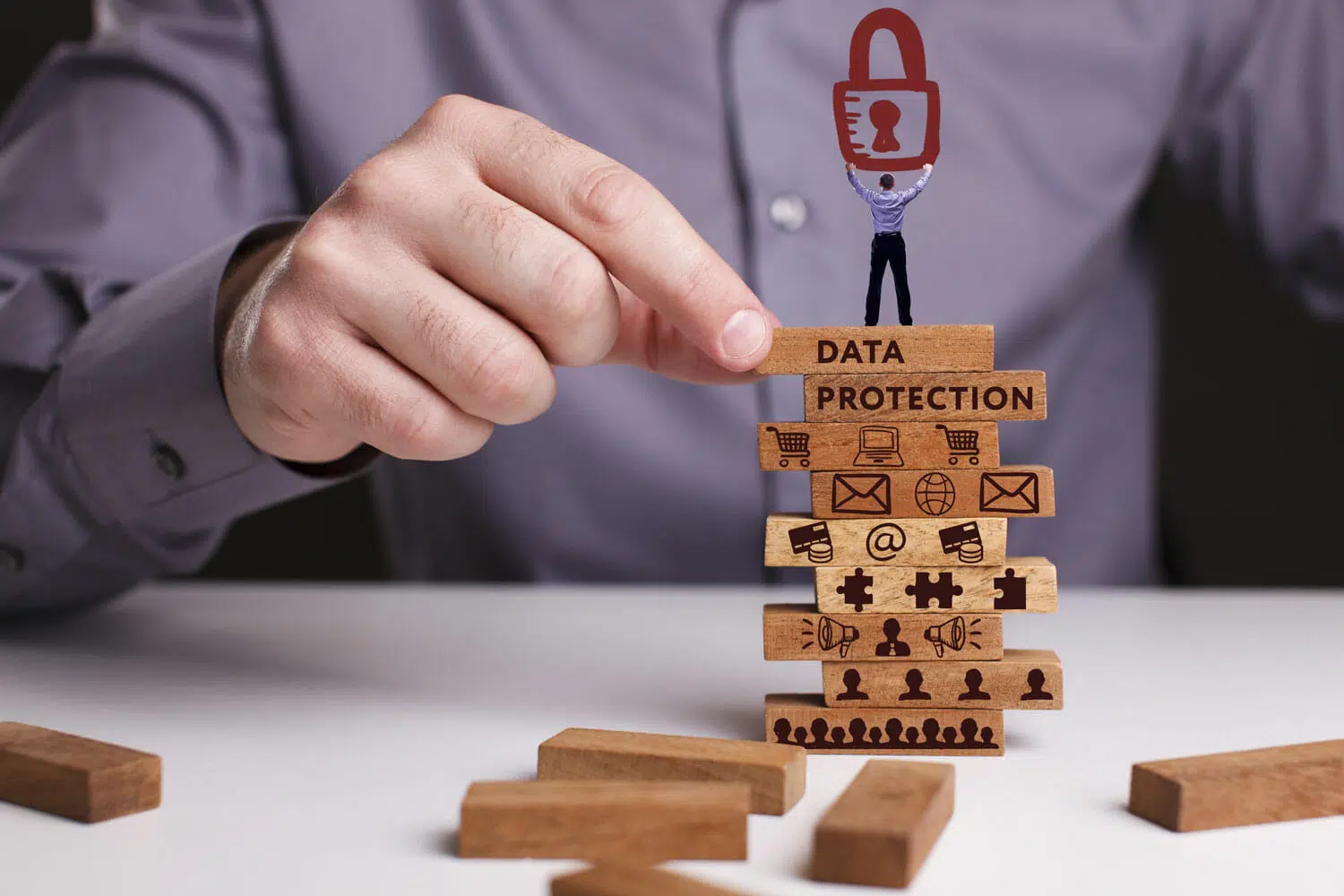The origin of the word “secretary,” for both the furniture and the person, is the Latin word secretum, meaning secret. Secretaries (furniture; person) help you hide secrets. Sometimes the cabinet makers building secretaries went a bit overboard, as with the Roentgens’ Berlin Secretary, which was carefully filmed while on loan to the Metropolitan Museum of Art1. If you wanted to hide something from your wife, a clever cabinet like the Roentgens’ secretary was the way to go, in the 18th century. What can you do today to protect your data?
Want Privacy? Avoid Advertising
The museum-quality secretary may have had eleventy-six tiny nooks and crannies for stashing love letters and safe deposit box keys, but let’s face it: it stood there, essentially beckoning, “Hey, I’m full of secrets!” The first tip for protecting your data during separation and divorce: avoid advertising.
- Do not leave cell phones, tablets, laptops, PCs or other devices lying around where your spouse (or your spouse’s friends, private investigator, or highly trained pocket picking monkey.
- Do not call attention to any recent purchase of an upgraded phone or other device to which you are quietly (quietly!) transferring all important data. You are not being deceptive, you are being private, and there is a difference.
Don’t Pass on a Super Strong Password
A password was, originally, an actual word allowing you to pass through picket lines and defensive perimeters around a camp. If you did not provide the right response to a call, you were … detained … in your travels. Passwords today are usually a collection of numbers, characters and letters.
Stop being casual about passwords. You need not be stunningly original, but for the love of the forefathers of technology, get past “123456” as a password. And no, “password” as a password is still not clever.
One technique that can lodge in your memory is to create a short sentence or phrase meaningful to you, and then use the initial letters: “I like 1973 Hawaiian Elvis” becomes “Il1973HE,” and nobody else will ever crack that.
Why all this worry about passwords? Because your wife cannot legally circumvent passwords. She will be violating the federal Wiretap Act, says the 7th U.S. Circuit Court of Appeals. Any device that requires a password, fingerprint, or other key is off limits to anyone but the owner, without a search warrant.
Get an External, Encrypted Hard Drive
You can buy security that fits in the watch pocket of your five-pocket jeans (yup, it’s a watch pocket). Encrypted flash drives and external hard drives can go with you, to be physically secured in a place known only to you. Avoid obvious places, like your son’s tree fort. Avoid the refrigerator, whose humidity can destroy the drive. Find a cool, dry place that you have a reason to pass by routinely, such as a corner of your garage or basement.
Storing Your Life in The Cloud
A great place to store and safeguard your data during separation and divorce is in the Cloud, so long as you remember there is no cloud; it is just some other person’s computer.
Though we metaphorically think of it as floating free somewhere above our heads, all data on the Cloud is stored in server farms all over the world. Last year’s tax records could be scattered from Calabasas, California to Kalamazoo, Michigan, meaning she would have a tough time pulling your data together if she did not know where it was.
How do you restrict entry into your private segment of the Cloud? Consider Apple iCloud, Google Drive, Dropbox or other widely advertised service. You access your cloud data with password protected devices, so even if they are stolen, your data is not sitting around on them.
For an added level of cloud security, go with a service like SpiderOak, which stores your data on the cloud but in encrypted form so that not even the spiders at SpiderOak can help you if you forget how to access it. (We don’t really think they are actual, sentient spiders — it is probably just a cute name.)
2FA (Two Factor Authentication) is a Life Saver
2FA is not in itself a password or pass phrase, but it could be the start of a good one: 2FA or Not 2FA, That is the Question. No, 2FA stands for Two Factor Authentication. You need two factors — what you have, and what you know — to get into your secure data. Consider your debit card. You have the card (what you have) and you know the Personal Identification Number (what you know). Together, you get 2FA, and your purchase.
Use 2FA for getting into financial accounts, by having the creditor, banker, or investment firm send a code to your cell phone. You use the code to unlock the final hurdle to your data. Your wife is not privy to your cell phone (is she????) so she cannot access your data.
Your Wife Has Your Cell Phone!?
Suppose you suspect your spouse has run off with your iPhone. Engage the friendly help of Find My iPhone, locate your device (it finds any Apple product) on a map, and remotely secure it from others. Use Lost Mode to remotely lock it, track it, and erase your own data.
Protect Your Data, and Your Rights, with The Firm For Men
We’ve had some clients so paranoid about their spouses, they should get International Spy Museum lifetime memberships. If you worry about protecting your data from your spouse during your separation or divorce, contact our Virginia Beach family law office at The Firm for Men or call, 757-383-9184. Your call activates the secret red flashing telephone inside the secret compartment of the secretary deep in our underground lair — no, no it doesn’t. It’s answered by a regular person at an ordinary desk. We may have no flashing red phone or secret compartments, but we do know how to protect you during separation and divorce.
[1] https://www.youtube.com/watch?v=MKikHxKeodA


